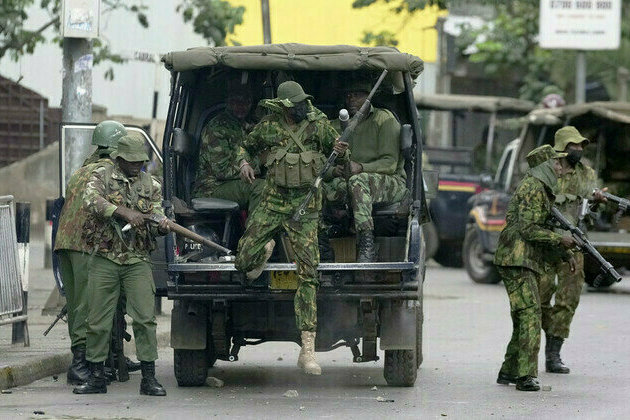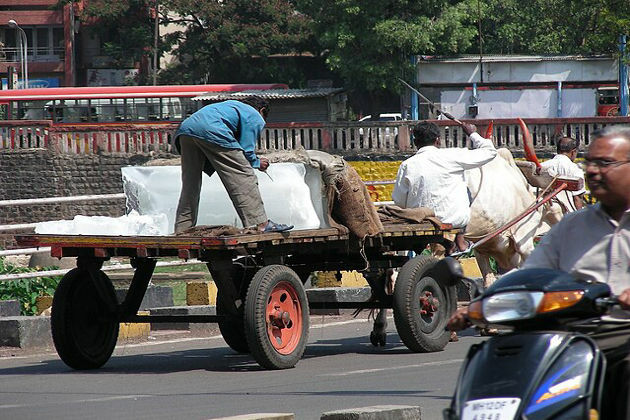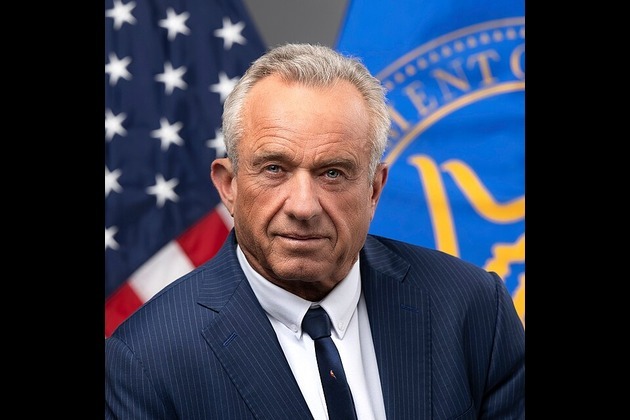Say goodbye to cheap oil and thank Israel and Iran while youre at it
RT.com
18 Jun 2025, 18:07 GMT+10

Insurance spikes, tanker collisions, and Red Sea detours reveal how regional conflict translates into real costs for a world still reeling from inflation
The sudden outbreak of the Israel-Iran war has thrown global oil markets into uncertainty by destabilizing the world's two most critical shipping chokepoints.Tehran's strategic messaging, including heightened military readiness around the Strait of Hormuz, has already impacted global trading patterns. In recent days, maritime advisories have reported a surge of electronic jamming in the Gulf, scrambling merchant shiptracking systems.Two oil tankerseven collided near Hormuz on June 17, causing a fire and the evacuation of a crew, but no oil spill. The incidents highlight the razor-thin margin for error in a waterway that routinely carries18-20million barrelsof oil per day, nearly a fifth of global trade.
While Iran's actions may be aimed at deterrence, the regional risk perception is very real. Historical precedent shows thateven the suggestionof closing the Strait of Hormuz can send global oil prices soaring. Shipping routes remain on edge amid ongoing airstrikes between Israel and Iran. Merchant vessels have reportednavigational interferencenear Bandar Abbas, a strategic Iranian port.Greek authorities, whose shipping companies operate much of the world's tanker fleet, have instructed vessels to log all passages through Hormuz, underscoring the seriousness of current tensions.
A misstep, be it a stray projectile or a retaliatory move from regional actors like the Houthis, could temporarily block this vital artery, triggering immediate price surges and logistical disruptions.
Even without a full shutdown, economic consequences are mounting. War-risk insurance premiums for Gulf-bound tankers have surged. In mid-June, Very Large Crude Carrier (VLCC) freight rates from the Arabian Gulf to Asia jumped over 20%, with further hikes likely if tensions escalate.
Analysts have cautioned that any Iranian strike on Strait infrastructure or an uptick in maritime confrontation would cause premiums to spike further. One London broker estimated that an extra$3-8 per barrelmay result purely from risk recalibration. These hidden costs are inevitably passed to consumers and energy-importing nations already grappling with inflation.
The Red Sea Spillover
Further south, the Red Sea and the Suez Canal remain volatile.Since late 2023, the Yemen-based Houthis have targeted commercial vessels in the Bab al-Mandab strait, complicating East-West maritime traffic. Most container lines and some oil tankers are now avoiding the Suez route, detouring via the Cape of Good Hope. This diversion adds10-14 daysto voyage times and congests African ports, straining supply chains and inflating shipping costs. Even after a temporaryceasefire brokeredearlier this year, Red Sea transits remain subdued. The Suez Canal Authority reportedrevenues felldramatically, from $2.4 billion to just $880 million in the span of a year. Egypt is now offeringup to 15% discountsto attract shipping back, but many carriers remain wary of the enduring threat.
The insurance sector mirrors this caution. War-risk premiums for vessels transiting the Red Sea have remained high despite lulls in attacks. Onereportfrom June 17 noted that for ships destined for Israel, war-risk costs ranged from 0.7% to 1.0% of vessel value. For a $100million tanker, that's nearly $1million in added cost for a week-long voyage. These elevated costs reinforce the broader economic implications of maritime insecurity.
Energy Security Redefined in a Fragmented World
The Israel-Iran conflict has exposed pre-existing vulnerabilities and rendered them urgent. The world's energy corridors are increasingly fragile. Gulf states such as Saudi Arabia, the UAE, and Iraq have made diplomatic and operational efforts to reassure markets. Riyadh has offered extra oil cargoes to offset volatility, while Tehran, despite elevated rhetoric, has not officially disrupted its exports. Still, the potential for broader escalation looms, making disruption more plausible.
For policymakers and energy strategists, the key takeaway is that modern energy security must go beyond domestic stockpiles and price stabilization measures. Greater international coordination is essential. Regional naval operations focused on secure navigation, better real-time maritime intelligence, and deconfliction mechanisms must be prioritized. Additionally, longer-term infrastructure investments, like undersea pipelines, overland transit corridors, and expanded port capacity in lower-risk regions, should form a core part of contingency planning.
Diplomacy also plays a critical role. Confidence-building measures between key maritime states and crisis communication channels can help prevent unintended escalation. The goal should not be confrontation, but a shared commitment to keeping global trade arteries open.
The current war is a reminder that energy routes are the lifelines of the global economy. If threats to these straits continue unchecked, the world will not only face higher prices but the prospect of systemic energy instability.
In this environment, securing freedom of navigation is not a matter of ideology, but a practical, shared necessity for global economic resilience.
(RT.com)
 Share
Share
 Tweet
Tweet
 Share
Share
 Flip
Flip
 Email
Email
Watch latest videos
Subscribe and Follow
Get a daily dose of Kenya Star news through our daily email, its complimentary and keeps you fully up to date with world and business news as well.
News RELEASES
Publish news of your business, community or sports group, personnel appointments, major event and more by submitting a news release to Kenya Star.
More InformationAfrica
SectionUNAIDS: Trump’s HIV aid cuts risk reversing global progress
JOHANNESBURG, South Africa: A key global plan to end AIDS as a public health threat by 2030 is now in deeper jeopardy after the United...
South Africa considers closing Israeli embassy
Pretorias cabinet will reach a final decision on the matter by the end of the year, according to an official The Cabinet is expected...
Kenyan officer arrested for shooting unarmed civilian
The man was shot at close range during protests over a bloggers death in police custody A Kenyan police officer has been arrested...
Say goodbye to cheap oil and thank Israel and Iran while youre at it
Insurance spikes, tanker collisions, and Red Sea detours reveal how regional conflict translates into real costs for a world still...
With solid body of work in red-ball game, can Jurel make it to playing XI during England tour?
London [UK], June 18 (ANI): As discussions around India's playing eleven for the first Test against England at Leeds continue, with...
SOUTH AFRICA-KWAZULU-NATAL-ROAD ACCIDENT
(250618) -- KWAZULU-NATAL PROVINCE, June 18, 2025 (Xinhua) -- This photo taken on June 17, 2025 shows the damaged bus at the scene...
World
SectionUNAIDS: Trump’s HIV aid cuts risk reversing global progress
JOHANNESBURG, South Africa: A key global plan to end AIDS as a public health threat by 2030 is now in deeper jeopardy after the United...
One Briton survived Air India crash that killed 241 in India
NEW DELHI, India: Ramesh Viswashkumar, a 40-year-old British national, has been identified as the sole known survivor of the Air India...
Rajasthan’s city records scorching 47.3°C, as India faces heatwave
NEW DELHI, India: A scorching heat wave is engulfing northern India, with temperatures rising well above normal and causing significant...
Kennedy ousts entire CDC vaccine panel amid conflict claims
WASHINGTON, D.C. U.S. Health Secretary Robert F. Kennedy Jr. has dismissed all 17 members of the CDC's Advisory Committee on Immunization...
Japan celebrates new sumo grand champion
TOKYO, Japan: Japan has a new top sumo wrestler — and he's Japanese. Onosato, who weighs 191 kilograms (421 pounds), has become a yokozuna,...
Fire contained in building near Seoul’s Jogye temple, treasures spared
SEOUL, South Korea: A fire broke out this week in a building near the historic Jogye Buddhist temple in Seoul. The building holds some...











